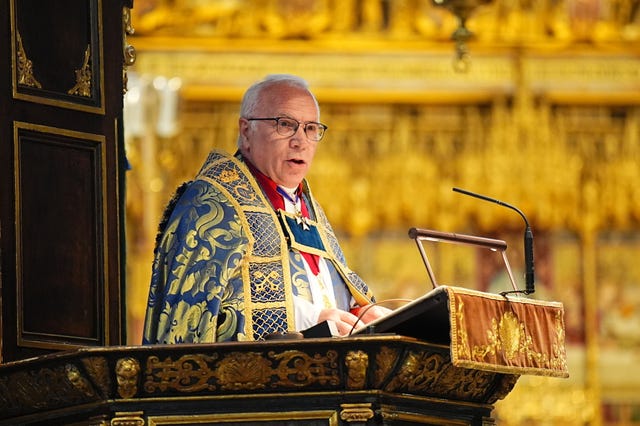Dean of Westminster says stories are being told to ‘deepen our divisions’
The Very Reverend Dr David Hoyle’s comments were made as he officiated at Westminster Abbey’s annual service commemorating Anzac Day.

The Dean of Westminster has said stories are being told to “deepen our divisions” in his Anzac Day address but suggested the sacrifices of First World War soldiers were tales “that unite and do not divide”.
The Very Reverend Dr David Hoyle’s comments were made as he officiated at Westminster Abbey’s annual service commemorating Anzac Day, the national day of remembrance for fallen Australian and New Zealand servicemen and women and those still serving.
He told the congregation of mainly Antipodeans, which included the Duchess of Edinburgh, how the abbey was filled with “proud remembrance” and how “we can be confident that there are important things to be said about nation and loyalty and commitment”.
The Dean said: “This world is fascinated by the power of the markets, it measures political allegiance, discusses the danger of migrants.
“This world divides to rule.
“We witness those around us fashioning new narratives to suit the times. The stories are so often intended to deepen our divisions.
“Here though, we remember and weave together both memory and hope in stories that unite and do not divide.”
During the service Stephen Smith, Australia’s high commissioner and Chris Seed, acting high commissioner for New Zealand laid wreaths at the grave of the unknown warrior close to the abbey’s great west door.
The event came after a poignant dawn service was staged at the Australian War Memorial at Hyde Park Corner in London with the duchess and the high commissioners among the congregation, followed by a wreath-laying service at the Cenotaph also attended by Sophie.

Anzac Day – April 25 – marks the start of the First World War Gallipoli landings in 1915, a campaign where thousands of Anzac troops – Australian and New Zealand Army Corps – died alongside British allies in the ill-fated mission.
Waves of Allied forces launched an amphibious attack on the strategically important Turkish peninsula, which was key to controlling the Dardanelles straits, the crucial route to the Black Sea and Russia.
But the plan backed by Winston Churchill, then first lord of the admiralty, was flawed and the campaign, which faced a heroic defence by the Turks, led to stalemate and withdrawal eight months later.
Its legacy is the celebration of the “Anzac spirit” – courage, endurance, initiative, discipline and mateship – shown by the Antipodean troops.





